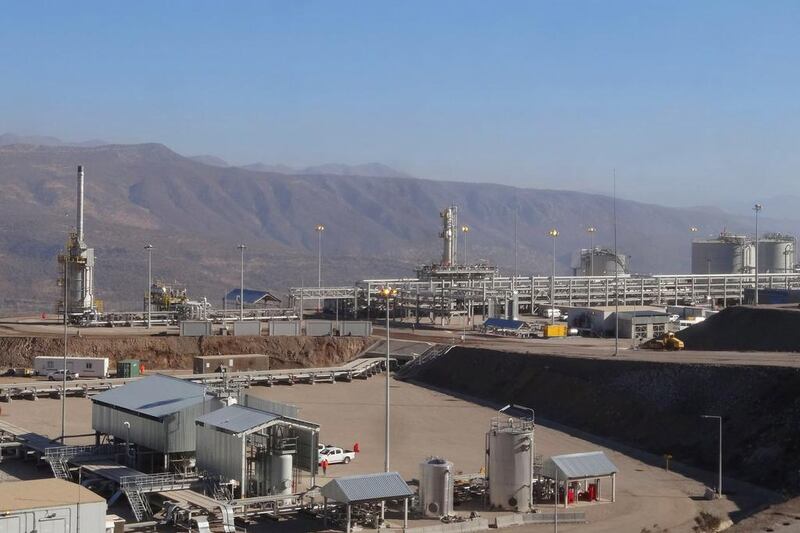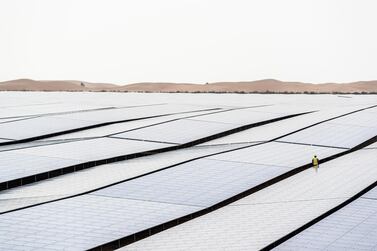Abu Dhabi National Energy Company, also known as Taqa, swung to a Dh1.4 billion ($390 million) profit in the first quarter after posting a Dh596 million loss in the same period a year earlier, boosted by higher oil prices and an economic rebound from the Covid-19 pandemic.
Group revenue was 3.4 per cent higher at Dh10.3bn in the first quarter. Capital expenditure increased 18 per cent to Dh1.3bn, recovering from a period of low-spend due to the pandemic, which resulted in projects being postponed.
"Looking forward, the conditions are more optimistic as we see the demand for utilities and commodities bounce back after the universal challenges brought on from the pandemic," said Jasim Thabet, Taqa group chief executive and managing director.
The company declared an interim cash dividend of Dh618m for the first quarter.
Taqa's earnings before interest, tax, depreciation and amortisation rose 12 per cent, due to higher revenue, lower operating expenses and higher income from associates.
Taqa, which also operates oil and gas assets, reached average production volumes of 120,000 barrels of oil equivalent per day, supported by higher production in Europe.
On Sunday, the company raised $1.5bn through a dual-tranche bond issue to fund its low-carbon growth plans and buy back some of its outstanding corporate bonds.
"In 2021, we hit the ground running with our recent bond issuance which received strong endorsement from investors around the world, showcasing Taqa's investment attractiveness and our commitment to delivering on our strategy," said Mr Thabet.
In March, the company announced a 2030 strategy that expands its renewables portfolio and lowers its carbon footprint.
Taqa plans to invest Dh40bn in infrastructure development in the UAE. The company looks to add about 27 gigawatts of power capacity by 2030, of which 15 gigawatts will be installed outside the UAE.
Taqa will generate more than 30 per cent of its power from renewable sources by 2030, compared with 5 per cent currently, as part of its 2030 strategy.
The company completed a merger with Abu Dhabi Power Corporation in July last year. The deal, effectively a reverse takeover, resulted in ADPC transferring assets worth Dh120bn to Taqa in return for shares, giving it a 98.6 per cent stake in the company.
The merged entity, which has assets worth Dh200bn, said it still expects to complete a public offering to diversify its share base, subject to market conditions and shareholder approval.
Taqa also allowed foreign investors to own up to 49 per cent of its issued shares earlier this year.
The company plans to expand its power-generation capacity in the UAE to 30 gigawatts from 18 gigawatts.
Taqa intends to boost its global generating capacity by 15 gigawatts.The increase will largely come through solar photovoltaic generation. It is currently building the massive 2-gigawatt Al Dhafra Solar PV plant alongside Masdar, France’s EDF Renewables and China’s JinkoPower.
About two thirds of desalination projects will be based on reverse osmosis, a membrane-based method of desalination that uses less energy compared with the thermal process used to produce fresh water.
The company is already building the world’s largest reverse osmosis desalination plant, Taweelah, which will produce 200 million imperial gallons of water a day.








